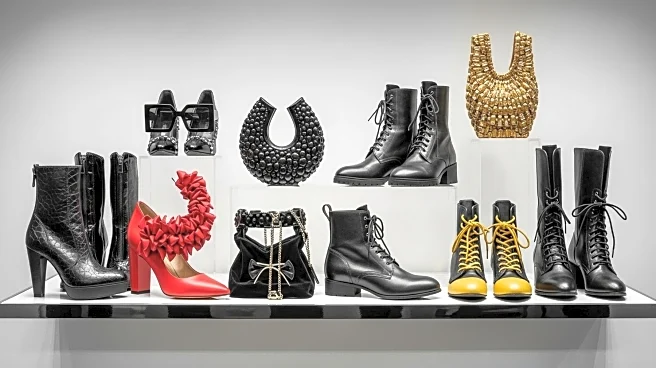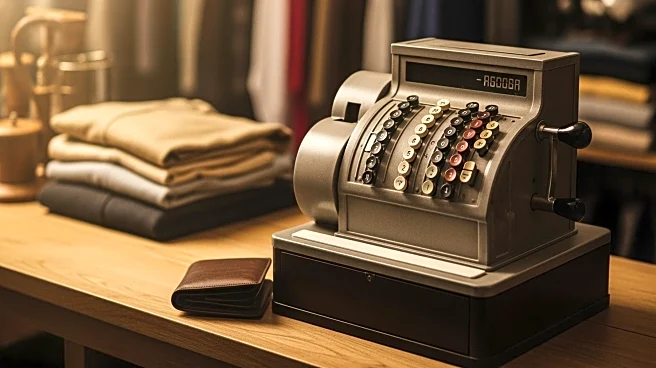What's Happening?
The RealReal Inc. has released its 2025 Resale Report, emphasizing the growing importance of the secondhand market in the fashion industry. The report highlights a shift in consumer behavior, particularly among Gen Z, who are increasingly seeking out bold brands and unique styles. This generation is moving away from uniformity and traditional fashion rules, opting instead for personal expression through resale items. The report also notes significant increases in searches for brands like Loewe and Gucci, driven by designer changes and celebrity influences. Additionally, there is a notable trend towards purchasing items with patina and wear, as consumers value authenticity and imperfection in fashion.
Why It's Important?
The findings from The RealReal's report underscore a significant shift in the fashion industry towards sustainability and individuality. As Gen Z continues to prioritize unique and eco-conscious fashion choices, the resale market is becoming a crucial component of the industry. This trend challenges traditional luxury brands to adapt to changing consumer preferences, potentially impacting their marketing strategies and product offerings. The emphasis on secondhand fashion also reflects broader societal shifts towards sustainability and environmental responsibility, as consumers seek to reduce waste and support circular economies.
What's Next?
Luxury brands may need to reconsider their approach to the resale market, potentially viewing it as an opportunity rather than a competitor. As consumer interest in secondhand items grows, brands could explore partnerships with resale platforms or develop their own resale initiatives. Additionally, the fashion industry might see increased innovation in sustainable practices and materials, as brands strive to meet the demands of eco-conscious consumers. The continued influence of social media and celebrity culture on fashion trends suggests that brands will need to remain agile and responsive to rapidly changing consumer preferences.
Beyond the Headlines
The rise of the resale market highlights deeper cultural shifts towards valuing authenticity and individuality over mass-produced uniformity. This trend may influence not only fashion but also other industries, as consumers increasingly seek products that reflect their personal values and lifestyles. The focus on imperfection and lived-in items challenges traditional notions of luxury and status, potentially leading to broader changes in consumer attitudes and behaviors. As the fashion industry adapts to these changes, it may also face ethical considerations regarding labor practices and environmental impact.









